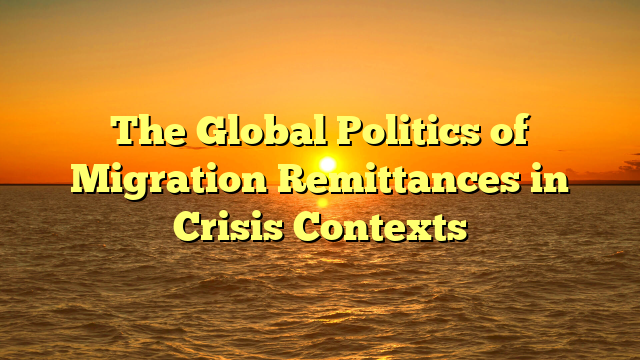Migration remittances are not only a critical economic lifeline but also a politically sensitive instrument in crisis-affected regions. Natural disasters, conflicts, and economic shocks have intensified reliance on remittances for both household slot online Naga169 survival and national budgets.
Countries like the Philippines, Mexico, and Bangladesh rely heavily on remittance inflows, which can constitute a significant portion of GDP. Political stability and economic policy in host countries directly affect the volume and reliability of these transfers.
Crisis contexts highlight vulnerability. Hurricanes in the Caribbean, floods in South Asia, and conflicts in the Middle East disrupt migrant earnings and remittance channels, prompting governments and international organizations to seek contingency measures. Financial inclusion, regulatory frameworks, and digital transfer systems are increasingly critical.
Remittances also have diplomatic significance. Host countries’ policies toward migrants influence bilateral relations, trade negotiations, and development assistance. Diaspora engagement adds an additional layer of political and social complexity.
“Remittances are both economic and political instruments,” said World Bank economist Dilip Ratha. “They stabilize households while shaping international relations.”
In a world facing interconnected crises, migration remittances remain a vital component of global economic and political stability.



